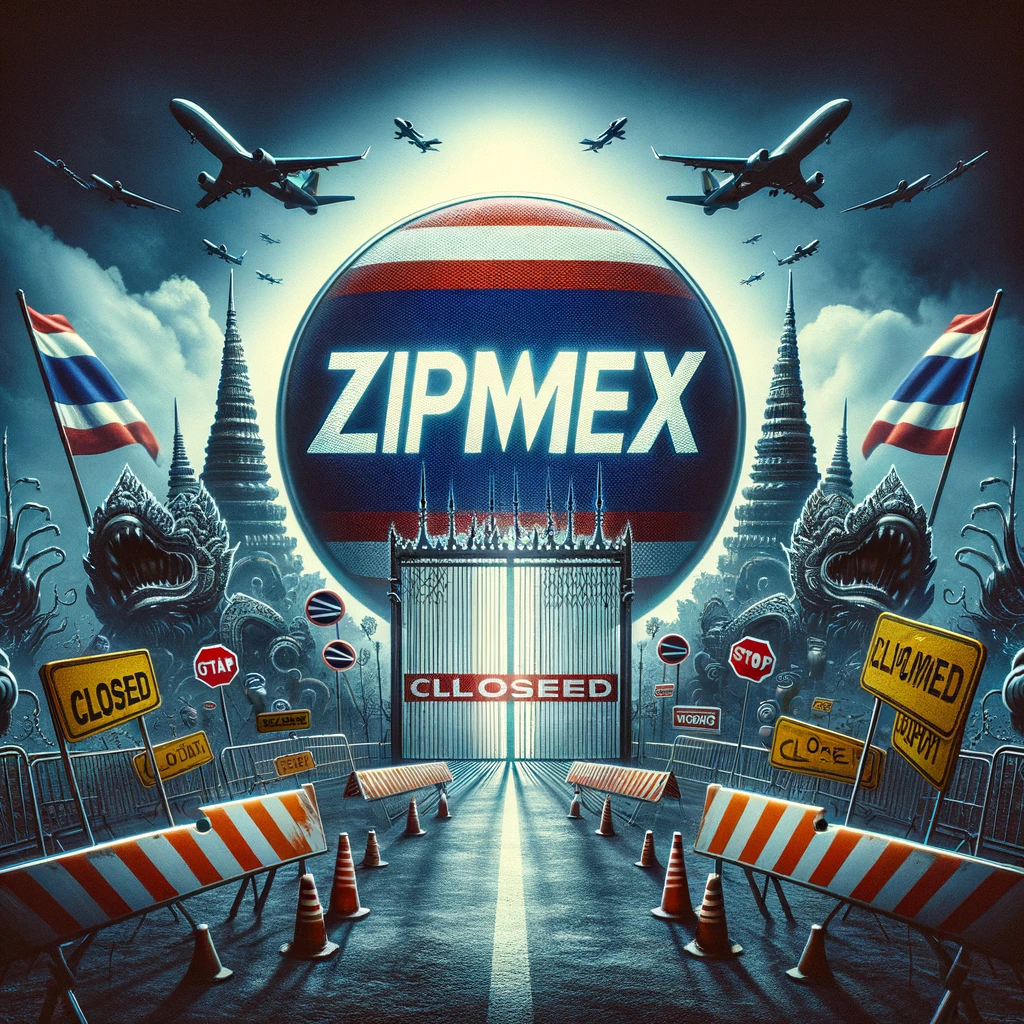The digital realm is buzzing with the latest shake-up: Zipmex, the cryptocurrency exchange that once soared in the digital skies, is now mandated to halt its operations in Thailand with immediate effect. This drastic measure comes straight from Thailand’s Securities and Exchange Commission (SEC), throwing a wrench into the workings of the crypto community. Zipmex is now on a tight leash, with a 15-day ultimatum to rectify its financial health and operational snags, as dictated by the financial watchdog.
A Regulatory Rodeo
Following the SEC’s decree, Zipmex’s saga turns more intricate. The exchange, embroiled in regulatory scrutiny since the crypto market’s tumble in 2023, finds itself at a crossroads. The crux of the matter lies in whether Zipmex can align its operations with the SEC’s stringent demands within the allotted fortnight. Failure to comply could see the Minister of Finance stripping Zipmex of its operational mandate, a scenario that Deputy Secretary General Anek Yuyuen hinted at without mincing words.
The underbelly of this turmoil traces back to the crypto exchange’s halted trading in November 2023, a move Zipmex claimed was in pursuit of regulatory compliance. Adding to the drama, the Singapore-based entity sought debt relief in 2022, leaving a $97 million debt trail in its wake. As of late 2023, Zipmex’s creditors were thrown a lifeline, albeit a thin one, offering 3.35 cents on the dollar for initial claims. This restructuring maneuver is a testament to the tightrope walk Zipmex performs in the face of financial adversity and regulatory scrutiny.
A Glimpse of Hope Amidst Chaos
The broader landscape of Thailand’s crypto regulations offers a silver lining. The SEC’s decision to lift investment limits on digital tokens backed by real estate or infrastructure heralds a new dawn for retail investors. This regulatory pivot, removing the 300,000 baht ceiling, opens the floodgates for increased investment in the digital token market, painting a vibrant picture of Thailand’s crypto future.
The adoption of more lenient rules comes at a time when the Thai crypto market is gaining momentum, underscored by KBank’s acquisition of the crypto exchange business Satang. This move signals a growing acceptance of digital assets within the financial ecosystem. Furthermore, the establishment of local custodial wallets operated by publicly traded entities exemplifies Thailand’s commitment to secure and regulated digital asset storage.
Srettha Thavisin’s ascendancy to the Prime Minister’s office in August 2023, coupled with his digital token endeavors, underscores a government keen on intertwining digital innovation with economic growth strategies. The government’s initiative to disburse 10,000 baht to citizens through digital wallets, although delayed, is a bold step towards fostering digital literacy and stimulating economic activity.
The SEC’s rejuvenated regulatory framework, emphasizing the licensing and operation of digital asset businesses, reflects a nuanced approach to nurturing the crypto ecosystem while safeguarding investor interests. Despite the cautious stance on spot bitcoin ETFs, akin to South Korea’s reservations, Thailand’s digital asset landscape is on the brink of expansion. The launch of Binance Thailand, facilitating exchanges with Thai baht trading pairs, is a case in point, promising a robust collaboration with local banks and international Binance branches.
Zipmex’s predicament is a stark reminder of the volatile nature of the crypto industry, underscored by regulatory hurdles and financial challenges. However, amidst the upheaval, Thailand’s evolving regulatory framework and increasing acceptance of digital assets herald a promising horizon for the crypto space. As Zipmex navigates through its regulatory maze, the broader narrative of Thailand’s digital asset market unfolds, characterized by innovation, regulatory foresight, and a steadfast commitment to investor protection.





